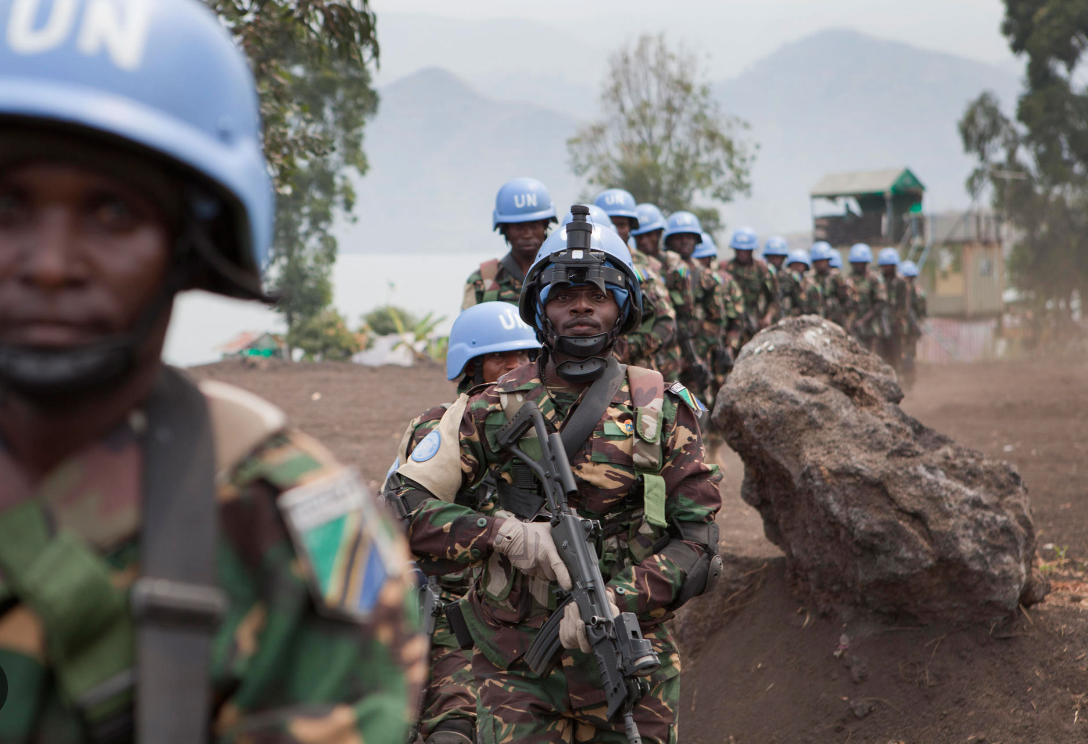Recently 272 civilians were killed by a rebel group. But a UN mission is to be withdrawn. However, an African peacekeeping force would not be a substitute.
Since the mid-1990s, the Democratic Republic of the Congo has been the scene of ongoing violent conflicts. Hundreds of rebel groups are fighting for control of valuable territories, particularly in the east of the country, which is rich in resources.
One of the largest armed groups, the M23 (named after the March 23, 2009 peace agreement), has regained strength this year. Since October there have been repeated reports of massacres of civilians, attacks on villages and towns for which the government blames the M23.
However, the UN assumes that the government army is also involved in human rights abuses. The neighbouring country Rwanda occupies a special position: in the past, Rwanda provided military support to the Tutsi-dominated M23, with the alleged aim of protecting the Rwandans living in the east of the country.
Increased calls for deduction
At the same time, there are increasing calls for the international peacekeeping mission MONUSCO to withdraw . At times one of the largest and most expensive missions in the world, the mission was sent in 1999 initially as a Monuc to monitor the peace process after the Second Congo War.
In 2010, the mandate was expanded to include peace-building measures such as the protection of civilians and the military stabilization of the country.
Then, in 2013, the Intervention Brigade was created, the first “robust” UN operation mandated to “neutralize and disarm” armed groups.
Protests against the UN soldiers
The hope was that the ongoing violence would be stopped. While the operation had some early successes, such as the 2013 ceasefire and withdrawal of the M23, the renewed violence has left many Congolese questioning the purpose of stationing international troops.
Since then, protests against the Monusco have increased, particularly in the provinces of North Kivu (Beni, Butembo and Goma) and South Kivu (Bukavu).
Although resentment against the mission is nothing new, civil society actors are now massively involved in the protests for the first time. Criticism is primarily directed at the fact that the peacekeeping mission, despite a robust mandate – i.e. using military means – did not manage to create peace.
This also plays into the hands of the Congolese government. The demand for a Monusco withdrawal distracts attention from the fact that the Congolese military and government have so far failed to bring peace to the country.
In addition, the peacekeeping force is an uncomfortable witness to ongoing human rights violations by the Congolese military and the government’s cooperation with violent groups such as the FDLR or the Mai Mai militias.
No end to the violence in sight
Experts also assume that President Tshisekedi wants to extend his mandate beyond 2023. However, this would become more difficult under pressure from the international community.
With a possible withdrawal of troops, however, the question of a security vacuum also arises. The Congolese military is too weak to fill the gap and violence is likely to escalate. The regional force of the East African Community (EAC) offers a supposed way out of the dilemma.
The governments of Burundi, Kenya, Uganda and South Sudan are struggling to contain the violence in the region. With the help of a regional peacekeeping force, a transition is to be created after the withdrawal of the Monusco.
However, problems remain: the EAC is new and inexperienced as a regional security actor and the mission’s funding is unclear. An EAC mission is not strong enough militarily to counteract the violence in eastern Congo.
In addition, there are economic and security policy differences between the member states. In particular, the political conflict between Rwanda and Congo, triggered among other things by support for the M23, is a hindrance to regional cooperation.
Ultimately, it is to be expected that there will be no end to the violence in the near future with a regional peacekeeping force. The challenges that the country has to master are too great – in addition to the insecurity and attacks on civilians, political reforms in particular are proving difficult.
Read the original article here.
Follow Nadine and Alex on Twitter.

